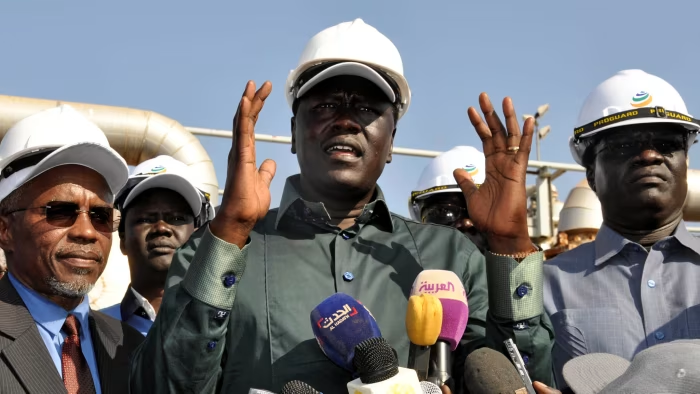Due to the continuous violence that has further stressed the finances of the nation, South Sudan will stop producing oil that passes via neighboring Sudan, a legislative official announced on Tuesday.
According to Oliver Mori Benjamin, the head of Parliament’s information committee, Petroleum Minister Puot Kang Chol informed members during a closed-door meeting that oil shipments would only start up again if the Sudanese crisis is resolved.
Compounding the problem, a pipeline that transported over 60% of South Sudan’s crude oil to Port Sudan for export was broken in February of this year.
“Our pipeline has been blocked, so there will not be any resumption of oil until the war in Sudan subsides,” Mori said, adding that a team from the government had been dispatched to shut down the pipeline in order to reduce risks.
Due to pipeline damage, South Sudan’s oil exports have been suspended since February 6, 2024. Operators of the Jabelyn-Port Sudan pipeline found gelling between Pump Stations 4 and 5, which are situated in a military activity zone. This led to the declaration of force majeure on March 16.
A significant pipeline in Sudan burst in the same month that Juba’s oil production fell from an average of 150,000 barrels per day (bpd) in 2023 to 90,000 bpd in March 2024.
Since Sudan is the only route for the export of crude oil from landlocked South Sudan, this effectively stopped South Sudan’s ability to ship its crude oil through Port Sudan to foreign markets.
Only 1.2 million barrels of South Sudanese oil were exported to foreign markets in March, down from 2.2 million in February and six million in January, according to the Petroleum Ministry.
Due to the continuous fighting in neighboring Sudan, diminishing earnings from oil production—which is South Sudan’s primary source of income—on exhausted wells, the country is currently experiencing a dollar deficit.

